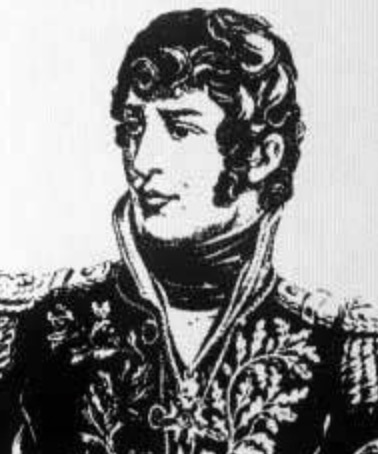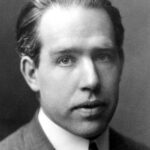Jean-Baptiste Cervoni was a distinguished military figure whose career was emblematic of the tumultuous period in French history during the rise and reign of Napoleon Bonaparte. Born in 1765 in Soveria, Corsica, his rise through the military ranks was both rapid and remarkable. His Corsican heritage was a common ground he shared with Napoleon, which played a role in his military ascension amidst the political and social upheaval of the time.
His military endeavors began with his commission as a lieutenant in the French army. He quickly distinguished himself as a capable leader and tactician, participating in numerous battles and campaigns across Europe. Cervoni’s skills and leadership did not go unnoticed, and his career progression reflected his competence and strategic acumen in the field. His involvement in various military campaigns under Napoleon showcased not only his personal bravery but also a deep understanding of the evolving nature of warfare.
Key Takeaways
- Cervoni was a notable military leader during the Napoleonic era, closely associated with Napoleon himself.
- His military career started in Corsica but extended across European battlefields where he proved his strategic prowess.
- Cervoni’s legacy is intertwined with the military and cultural history of France during the early 19th century.
Early Life and Military Beginnings
Jean-Baptiste Cervoni’s path to military prestige began with his Corsican roots and a fervent entry into the French Army. This section explores his formative years and the commencement of his military career.
Early Years in Corsica
Born on August 22, 1765, in Soveria, Corsica, Jean-Baptiste Cervoni was immersed in the Corsican culture with French as the administrative language but Corsican as his native tongue. His early life on the island shaped his resilient character.
Entry into Military Service
Cervoni commenced his military service in 1783 as a Sous-Lieutenant in the French Army. His first major confrontation was at the Siege of Toulon in 1793, where he began to distinguish himself and solidify his military career.
Military Campaigns and Battles
Jean-Baptiste Cervoni’s military career was marked by significant contributions to a number of campaigns and battles during the French Revolutionary Wars, particularly under Napoleon Bonaparte’s command. His strategic prowess became evident in the Italian Campaigns and in several key battles where he displayed notable leadership.
Italian Campaigns
Under Napoleon Bonaparte, Cervoni fought in the Italian Campaigns where he demonstrated exceptional military capability. The Army of Italy, a branch of the French Revolutionary Wars’ Combined Armies, saw Cervoni take an active role in its maneuvers throughout Northwest Italy. His involvement was crucial in achieving French supremacy in the region.
- Battle of Lodi (May 10, 1796): Cervoni was instrumental as the French forces secured a decisive victory against the Austrians.
- Siege of Mantua (July 4, 1796 – Feb 2, 1797): He took part in this prolonged siege, one of the central engagements in the Italian campaigns that considerably weakened Austrian hold.
Prominent Battles
Cervoni’s name is associated with several prominent battles, some of which led to his recognition at the Arc de Triomphe.
- Battle of Rivoli (January 14–15, 1797): His role in this crucial engagement allowed the French to decisively defeat the Austrian forces, further establishing French control.
Engagement Role Outcome Battle of Rivoli Commander French Victory - Battle of Eckmühl (April 21–22, 1809): Cervoni was present in this battle against Austria. It was a pivotal victory that solidified Napoleon’s authority in the region.
The road to Rivoli and the strategic triumph at Eckmühl underscored Cervoni’s capabilities as a commander who played a vital role in the success of Napoleon’s military expeditions. His contributions to these campaigns and battles are etched into history, not only through military records but also through his commemoration on the Arc de Triomphe, a testament to his valor and skill.
Rise to Prominence and Leadership
Jean-Baptiste Cervoni’s ascent to military acclaim occurred during the tumultuous periods of the French Revolutionary and Napoleonic Wars. His progression in rank and distinguished service in various sieges cemented his reputation as an able commander.
Progression to General of Division
Cervoni began his military career as a volunteer in the Corsican regiment. Through his service, he quickly rose through the ranks, becoming a Chef de Brigade by 1793. His courage and strategic acumen during the French Revolutionary Wars earned him further promotion. He attained the rank of Général de Division in 1799, marking his formal recognition as a high-ranking officer within the French military hierarchy.
| Year | Rank Achieved |
|---|---|
| 1793 | Chef de Brigade |
| 1799 | Général de Division |
During his career advancement, Cervoni became closely associated with prominent military figures, including André Masséna, under whose command he served.
Role in Key Sieges
Cervoni’s leadership skills were prominently displayed during the Siege of Mantua (1796–1797), one of the pivotal sieges of the Napoleonic Wars. Under the command of General Masséna, Cervoni proved instrumental in executing strategies that eventually led to a French victory. His actions during this siege demonstrated his capacity to handle large-scale military operations and command respect from his peers and subordinates alike.
For his outstanding service, Cervoni was honored with the Légion d’Honneur, France’s highest decoration, acknowledging his valour and contributions to France’s military successes. This decoration further solidified his status as a respected military leader.
Throughout the Napoleonic Wars, Cervoni’s role as commander would see him leading troops into battle across Europe, solidifying his leadership stature within the French military establishment.
Death and Legacy
Jean-Baptiste Cervoni’s untimely death during the Napoleonic Wars left a legacy marked by military distinction and posthumous honor.
Circumstances of Cervoni’s Death
General Jean-Baptiste Cervoni was killed in action on April 22, 1809, during the Battle of Eckmühl. Leading his troops in an attack near the Bavarian village of Schierling, Cervoni was struck down by a cannonball. The loss of this experienced commander was a significant blow to the French Army.
Posthumous Recognition
Following his death, Cervoni was recognized for his service and loyalty to Napoleon Bonaparte. He was posthumously awarded the title of Commander of the Legion of Honour, one of France’s highest honors. Additionally, his name is among those names inscribed under the Arc de Triomphe, commemorating the esteemed generals of the Napoleonic Wars and solidifying his legacy.
Cultural and Historical Impact
Jean-Baptiste Cervoni holds a distinct position as a historical figure from the Napoleonic era. His military achievements and service under Napoleon Bonaparte have been referenced across various media platforms, enriching the public’s understanding of this pivotal time in French history.
Media: Cervoni’s military career, particularly his loyalty and roles during the Napoleonic Wars, has been mentioned in historical documentaries and literature. These works help to propagate his legacy, providing insights into the complexity of the French military strategies and the character of the soldiers who implemented them.
Wikipedia: As an online resource that provides comprehensive historical content, Wikipedia contains detailed entries about Jean-Baptiste Cervoni. This platform allows for a broad audience to access information regarding his life and military endeavors.
Wikimedia Commons: This repository of free-use images and media files includes depictions of Cervoni and scenes from the Napoleonic Wars. These visual resources contribute to a deeper understanding of the period’s atmosphere and the personas of its key figures.
Dictionary of the Napoleonic Wars and The Napoleonic Wars Data Book: Both authoritative texts serve as essential references for historians and enthusiasts, providing factual data on battles, biographies, and military units. Cervoni’s career is duly noted in entries that outline key movements and decisions that shaped the outcome of the wars.
His status as a French Historical Figure is cemented by his substantial contributions to Napoleon’s campaigns. The impact of his actions extends beyond his lifetime, offering a rich perspective on leadership and loyalty in the tumultuous Napoleonic era.
The legacy of Jean-Baptiste Cervoni, fortified by the ongoing study and portrayal of his life, is influential in understanding the complexities of military leadership and the evolution of French military doctrine. His narrative continues to be a point of reference for those examining the far-reaching implications of the Napoleonic Wars.







